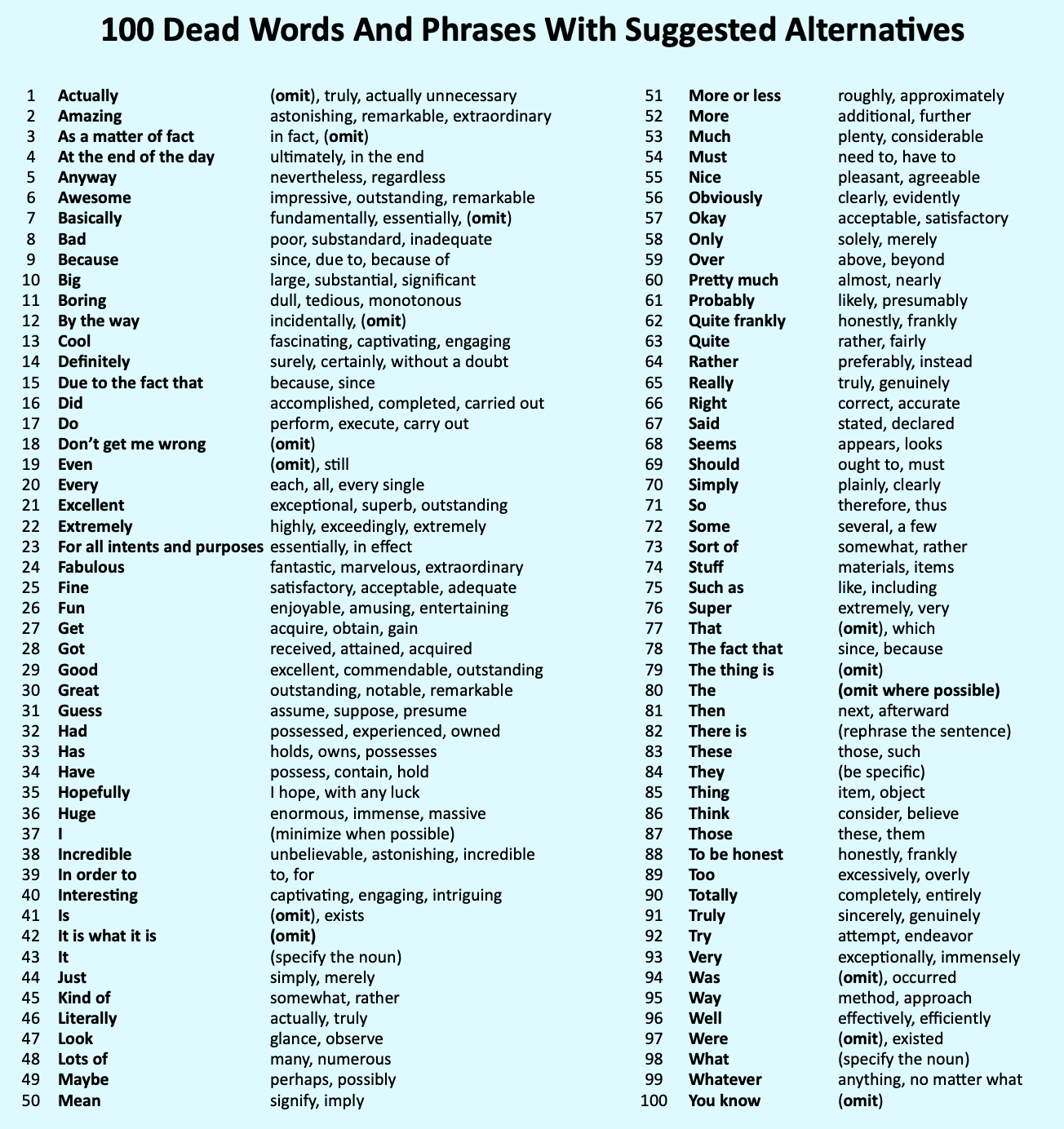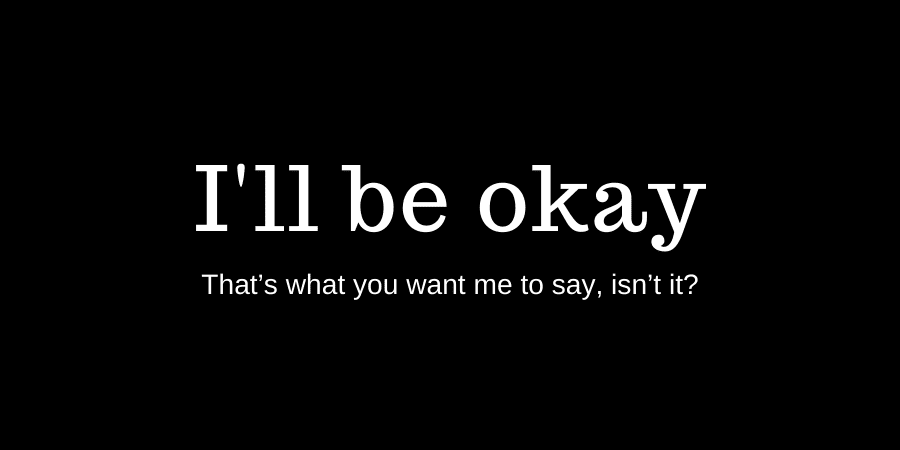
Dead words is a catch-all expression to describe words and phrases that are unnecessary, weak, or overused in writing.
Every word has its place. But in writing, the words you choose should be in the right place and for the right reason.
At the top of the list are hackneyed phrases such as, due to the fact, quite frankly, that being said, and at the end of the day.
As for weak words, just, very, and really are always candidates to be zapped from a text.
How to identify dead words
Any word or phrase can be weak or dead if it is overused in a piece of writing.
Every writer has tic or habit words that always seem to creep into their writing.
The challenge is to find and replace or delete these when editing or proofreading.
If a word or phrase is overused, it’s usually an easy fix.
However, some words, such as the verb to be are more difficult to classify.
It’s because, in some cases, the verb is necessary, but in others, it’s not the best choice.
A good example is with the dummy subject of there are, there is, or there were.
It’s almost always possible to rewrite these sentences, as in this example.
There were over one hundred people at the wedding. (Weak)
Over one hundred people attended the wedding. (Stronger)
My top 100 candidates
Creating a complete list of dead words is impossible.
It always depends on the context and how you use a word or phrase.
However, here’s a list for you of one hundred words and phrases I believe are often prime candidates to consider removing or replacing.
Each word or phrase has suggestions for replacements or advice to omit.
One observation though, is that some words on the list are only weak when overused.
The suggested replacements could also be weak but stronger when used less frequently.

You don’t need to follow the list to the letter, as it’s not a set of golden rules or forbidden words.
However, it might give you some ideas about your choices of vocabulary and where you might improve.
Many of the suggestions can help make your writing stronger. For example, you might consider replacing it or what with nouns.
Actually, naturally and evidently, I only included a few LY adverbs to avoid.
However, almost every LY adverb deserves consideration about how appropriate it is in any writing.
Most of the time, you can find better solutions.
As for the remaining suggestions, it’s up to you to decide if they are helpful.
Seven words that are always candidates
No matter what you are writing, these handful of dead words are always well worth replacing.
Very: Try replacing very big with large, huge, or enormous.
Really: Change really good to excellent or outstanding.
Just: Just another day could change to another day or a typical day.
Some: Possibly replace some with many, a few, or numerous.
Things: It is a true vague word. Try replacing it with specific nouns or use aspects or elements.
Amazing: One of the most overused words, so it often loses its power. Try opting for incredible, extraordinary, or remarkable.
Stuff: It’s similar to things but even more vague. Specify what you mean with specific vocabulary.
Conclusion
You don’t need to go to the extremes of writing as if you were trying to win a six-word challenge.
Incidentally, contrary to popular belief, Ernest Hemingway didn’t invent this form of ultra-short flash fiction.
However, being economical with words is good advice.
It’s not the word count that matters; it’s the story or information in content writing that does.
In writing, no word or phrase by itself is a dead word.
It’s only about how, when, where, and how often you use it.
Related Reading: 10 Writing Rules That Are Waiting To Be Broken
Share This Article


